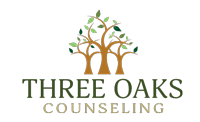Depression: Causes, Symptoms, and Treatments
Here at Three Oaks, your mental health is important to us. According to the U.S. Centers for Disease Control (CDC), 4.7% of adults over the age of 18 in the United States experience regular feelings of depression. Depression, also known as major depressive disorder or clinical depression, is defined as a “mood disorder that causes persistent feelings of sadness and loss of interest.” Depression can make doing normal day-to-day activities difficult, and sometimes you may feel as if life isn’t worth living.
A 2019 study in the US found that as many as 11.5% of adults experienced mild symptoms of depression, with those ages 18-29 being more likely to experience any symptoms of depression. In this study, women were more likely than men to report depressive symptoms.
Common Causes of Depression
There are many possible causes of depression, including faulty mood regulation by the brain, genetics, stressful or traumatic life events, medications, and underlying medical or mental health issues. < strong>Common Symptoms of Depression
There are many types of depression: events in your life cause some types of depression, while chemical changes in your brain may cause others. The first step is to contact your primary care provider or a mental health specialist to let them know how you’re feeling. Figuring out what type of depression you may have is an important step in deciding the right treatment.
- Feelings of sadness, tearfulness, emptiness, or hopelessness
- Angry outbursts, irritability, or frustration
- Loss of interest or pleasure in most or all normal activities
- Changes in sleep patterns
- Tiredness and lack of energy
- Reduced appetite and weight loss, or increased cravings for food and weight gain
- Anxiety, agitation, or restlessness
- Slowed thinking, speaking, or body movements
- Feelings of worthlessness or guilt, fixating on past failures or self-blame
- Difficult thinking, concentrating, making decisions, and remembering things
- Frequent or recurrent thoughts of death, suicidal thoughts, suicide attempts, or suicide
- Unexplained physical problems, such as back pain or headaches
Your doctor might diagnose you with depression if you have five or more of these symptoms on most days for 2 weeks or more.
Depression in Children and Adolescents
According to the CDC, 3.2% of children ages 3-17 have been diagnosed with depression. Depression in children and adolescents presents itself in a similar way to adults. In children, these symptoms can include: sadness, irritability, clinginess, worry, aches, and pains, and refusing to go to school.
In teens, these symptoms may include: sadness, irritability, poor performance or poor attendance in school, feeling misunderstood or extremely sensitive, using recreational drugs or alcohol, self-harm, and avoidance of social interaction. Extreme depression can lead to thoughts of suicide. For children and adolescents ages 10-24, suicide is among the leading causes of death. For resources on suicide prevention, visit https://youth.gov/youth-topics/youth-suicide-prevention.
Treatments for Depression
The first step for treatment for depression is to talk with a healthcare provider, such as you or your child’s primary care provider or a mental health specialist. Mental health professionals at Three Oaks can help you and your family develop a comprehensive therapy plan. A healthy lifestyle can also aid in managing symptoms of depression. Having a healthy, balanced diet, participating in routine physical activity, getting adequate and restful sleep, and practicing mindfulness or meditation can help manage or alleviate symptoms of depression when practiced in conjunction with a therapy plan.
Resources for Depression
If you feel depressed or believe that you may be experiencing a combination of the above symptoms, make an appointment to see your doctor or mental health professional. If you’re reluctant to seek treatment, talk to a friend or loved one, any healthcare professional, or someone you trust. Our professionals at Three Oaks are available to speak with you and answer any questions you may have. If you think you may hurt yourself or attempt suicide, please contact 911 immediately.
If you are having suicidal thoughts:
- Call your doctor or mental health professional.
- Call a suicide prevention hotline. In the US, call the National Suicide Prevention Lifeline at 1-800-273-TALK (1-800-373-8255).
- Call a loved one or close friend.
- Contact a minister, spiritual leader, or someone else in your faith community.

